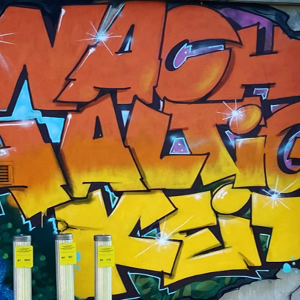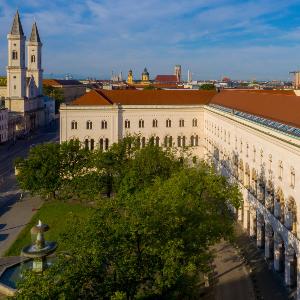ESD, el mundo and LMU
Here you will find various information on the three topics of Education for Sustainable Development, the teaching certificate programme and el mundo at LMU.

Here you will find various information on the three topics of Education for Sustainable Development, the teaching certificate programme and el mundo at LMU.


© el mundo
The overarching goal of aligning teaching and learning contexts within the framework of ESD is to empower and encourage learners to engage with complex issues relating to future-oriented sustainability challenges and to actively shape society. This requires a comprehensive review of key topics in order to examine and evaluate important issues from an ecological, economic, cultural, political, and social perspective and to train systemic thinking. In this context, el mundo is guided by the United Nations (UN) 2030 Agenda for Sustainable Development, the 17 Sustainable Development Goals (SDGs) of the UN, and the curriculum guidelines. It sharpens awareness of the skills needed to deal with local and global challenges. The Inner Development Goals (IDGs) framework, which was developed to work constructively on the SDGs, is helpful in this regard as well.
Addressing issues that are relevant for the future and developing skills are among the key prerequisites for working together towards a stable, sustainable society. Another important step is to determine which materials or methods are particularly suitable for the respective target group.
At el mundo, these processes are carried out in a practical manner and tailored to individual needs. Students take on a high degree of responsibility for their own learning process and set their own priorities. Joint reflection phases with lecturers and fellow students serve to build networks, stimulate interdisciplinary thinking, and strengthen cohesion.

© el mundo
The el mundo certificate program is an educational offer for teacher training students of all school types and subject combinations at Ludwig Maximilian University in Munich. It comprises 45 ECTS credit points and seven modules that support students on their path to aligning their school teaching with the principles of education for sustainable development. This includes, above all, linking socially relevant topics to the everyday lives of students as well as using methods that develop skills and qualities such as self-reflection, creativity, critical thinking, courage, resilience, and plurality of perspectives.
The teaching and learning concept at el mundo focuses on participatory and design-oriented learning. The el mundo portfolio includes field trips and service learning, collaborations with non-university education partners, and innovative process-oriented assessment formats such as educational discussions and learning diaries. All teaching and learning contexts are designed in such a way that students can draw on them later in their work as teachers. With el mundo, LMU is proactively responding to diverse requests from academia, politics, and society that view the anchoring of education for sustainable development as a cross-cutting task.

© LMU
el mundo – sustainability in studies and teaching develops Education for Sustainable Development (ESD) at LMU and is also involved in regional, national, and even international contexts. el mundo focuses on participatory and design-oriented learning, responding to a wide range of requests from academia, politics, and society that view the anchoring of education for sustainable development as a cross-cutting task. It combines research-based teaching with systemic thinking and social relevance.
Based on the certificate program for ESD in teacher training, the el mundo team is currently developing an LMU-wide minor in sustainability, which is scheduled to start in the 2026/27 winter semester. This minor will be offered in two versions with either 30 or 60 ECTS credits. It is similar to the certificate program in terms of its focus and structure, but is aimed at bachelor's students, thus enabling transdisciplinary learning for a new generation of leaders. Both initiatives, the minor and the certificate program, are being developed with significant support from LMU's university management.
In addition, el mundo is involved in various national and international projects (e.g. ERASMUS+, BMBF, Virtual University of Bavaria (vhb), Hanns Seidel Foundation) related to the "service learning" learning format. This format offers a unique opportunity to combine practical work with academic knowledge in the form of sustainability-related projects with non-university cooperation partners, thereby contributing to a sustainable society even during the course of training.
When developing learning formats, the el mundo team always strives to maintain a balance between digital and analog teaching formats, as well as between academic, subject-specific, and holistic teaching content. However, reflection and participation are always integral components and guiding principles.
In addition, el mundo maintains a wide range of partnerships with educational stakeholders in Munich's urban community. These include collaborations with the BNE stakeholder platform and with BNE-VISION-2030, an initiative of the City of Munich. Together with the latter, el mundo is currently developing several teaching and learning pathways.
At LMU, el mundo is networked with numerous initiatives and actors in the field of sustainability, actively participates in several projects of the LMU Sustainability Fund, and is in close creative exchange with, for example, the Munich Center for Sustainability (MZN), PROFiL, and the Munich Center for Teacher Education (MZL).